9 start with L start with L
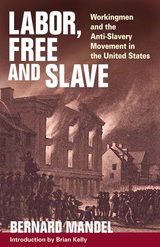
Bernard Mandel's classic study provides a concise overview of the relationship between organized abolitionism and the fledgling labor movement in the period before the Civil War. Mandel argues that slavery reinforced the powerlessness of white workers North and South, and the racial divisions that it upheld rendered effective labor solidarity impossible. Deep distrust between abolitionists and the working classes, however, compelled Northern workers to find their own way into the antislavery ranks.
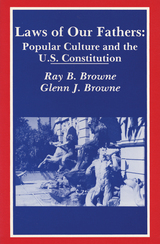
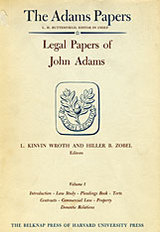
Like many another statesman, John Adams entered the political arena by way of the legal profession. Here, gathered together in three volumes, is an inclusive presentation of the important legal cases in which he was involved. Student notes and Commonplace Book, which show the influences on the young law student in 1758 and 1759 are followed by Adams' Pleadings Book, a collection of forms providing a cross-section of the law in eighteenth-century Massachusetts and showing his work as teacher as well as student.
The sixty-four cases documented are divided into sixteen legal categories such as Torts, Property, Domestic Relations, Town Government, Conservation, Religion, Slavery, and Admiralty. They are preceded by editorial headnotes which discuss the background, significance, and importance of each category and case. Careful and thorough footnotes explain textual and legal problems; a register of John Adams' contemporaries furnishes sketches of his colleagues on the bench and bar; and an exhaustive chronology records his growing practice. But the bulk of the material consists of Adams' own notes and minutes, supplemented by court records, letters, depositions of witnesses, and the minutes of other lawyers, as well as extracts from Adams' correspondence and diary to make the record of each case as full as possible. Many of the cases concern events, personalities, and legal struggles directly related to the American Revolution.
The entire third volume of this imposing collection is devoted to the so-called "Boston Massacre." Confronted by a fascinating mass of conflicting evidence, charges and countercharges, and confused and confusing witnesses, many Americans will be surprised to discover that they must revise their notions about what actually happened on that March evening in 1770, why it did, and what ensued.
These three books comprise the first segment of Series III of The Adams Papers. The William Nelson Cromwell Foundation has made possible the editing of these volumes by means of a generous grant to the Harvard Law School.
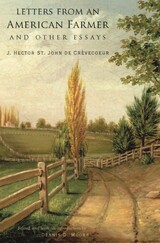
Letters from an American Farmer was published in London in 1782, just as the idea of an “American” was becoming a reality. Those epistolary essays introduced the European public to America’s landscape and customs and have since served as the iconic description of a then-new people. Dennis D. Moore’s convenient, up-to-date reader’s edition situates those twelve pieces from the 1782 Letters in the context of thirteen other essays representative of Crèvecoeur’s writings in English.
The “American Farmer” of the title is Crèvecoeur’s fictional persona Farmer James, a bumpkin from rural Pennsylvania. In his Introduction to this edition, Moore places this self-effacing pose in perspective and charts Crèvecoeur’s enterprising approach to self-promotion, which involved repackaging and adapting his writings for French and English audiences.
Born in Normandy, Crèvecoeur came to New York in the 1750s by way of England and then Canada, traveled throughout the colonies as a surveyor and trader, and was naturalized in 1765. The pieces he included in the 1782 Letters map a shift from hopefulness to disillusionment: its opening selections offer America as a utopian haven from European restrictions on personal liberty and material advancement but give way to portrayals of a land plagued by the horrors of slavery, the threat of Indian raids, and revolutionary unrest. This new edition opens up a broader perspective on this artful, ambitious writer and cosmopolitan thinker who coined America’s most enduring metaphor: a place where “individuals of all nations are melted into a new race of men.”
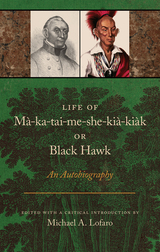
Originally published in 1833, the autobiography of the Sauk war chief Black Hawk was the first memoir written by a Native American who was actively resisting US Indian removal policy. Donald Jackson edited the first scholarly version of this work—Black Hawk: An Autobiography—in 1955. Since then, the Life has become a classic and seminal text in the fields of Native American literature and studies, American history, literature, autobiography, and cultural studies.
This edition of Black Hawk’s 1833 autobiography includes explanatory, historical, and textual notes that significantly enrich the understanding of Black Hawk’s memoir, his life, and the Black Hawk War of 1832. The notes and a chronology make this key Native American text available to scholars in several new ways. Likewise, in its preface and critical essay, this edition moves beyond Jackson’s historical work to incorporate insights from numerous other disciplines that have since engaged the text. These investigations reflect the new developments in scholarship since 1955, suggest future possibilities for the crosscultural study of Black Hawk’s Life, and examine the continuity of his autobiography within Native American and other life-story traditions. This volume also includes the biographical continuation of Black Hawk’s Life—recounting subsequent events in his life until his death in 1838—written by J. B. Patterson for his 1882 reissued and expanded edition of the original autobiography.
Scholars of Native American literature and history and settler colonialism will find much to engage them in this remarkable new edition.

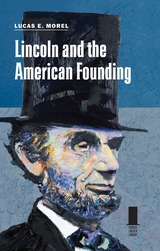
With each chapter describing a particular influence, Morel leads readers from the Founding Father, George Washington; to the founding documents, the Declaration of Independence and Constitution; to the founding compromise over slavery; and finally to a consideration of how the original intentions of the Founding Fathers should be respected in light of experience, progress, and improvements over time. Within these key discussions, Morel shows that without the ideals of the American Revolution, Lincoln’s most famous speeches would be unrecognizable, and the character of the nation would have lost its foundation on the universal principles of human equality, individual liberty, and government by the consent of the governed.
Lincoln thought that the principles of human equality and individual rights could provide common ground for a diverse people to live as one nation and that some old things, such as the political ideals of the American founding, were worth preserving. He urged Americans to be vigilant in maintaining the institutions of self-government and to exercise and safeguard the benefits of freedom for future generations. Morel posits that adopting the way of thinking and speaking Lincoln advocated, based on the country’s founding, could help mend our current polarized discourse and direct the American people to employ their common government on behalf of a truly common good.
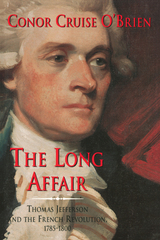
"The book is an attack on America's long affair with Jeffersonian ideology of radical individualism: an ideology that, by confusing Jefferson with a secular prophet, will destroy the United States from within."—David C. Ward, Boston Book Review
"With his background as a politician and a diplomat, O'Brien brings a broad perspective to his effort to define Jefferson's beliefs through the prism of his attitudes toward France. . . . This is an important work that makes an essential contribution to the overall picture of Jefferson."—Booklist
"O'Brien traces the roots of Jefferson's admiration for the revolution in France but notes that Jefferson's enthusiasm for France cooled in the 1790s, when French egalitarian ideals came to threaten the slave-based Southern economy that Jefferson supported."—Library Journal
"In O'Brien's opinion, it's time that Americans face the fact that Jefferson, long seen as a champion of the 'wronged masses,' was a racist who should not be placed on a pedestal in an increasingly multicultural United States."—Boston Phoenix
"O'Brien makes a well-argued revisionist contribution to the literature on Jefferson."—Kirkus Reviews
"O'Brien is right on target . . . determined not to let the evasions and cover-ups continue."—Forrest McDonald, National Review
"The Long Affair should be read by anyone interested in Jefferson—or in a good fight."—Richard Brookhiser, New York Times Book Review
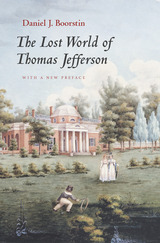
"The volume is too subtle, too rich in ideas for anyone to do justice to it in brief summary, too heavily documented and too carefully wrought for anyone to dismiss its thesis. . . . It is a major contribution not only to Jefferson studies but to American intellectual history. . . . All who work in the history of ideas will find themselves in Mr. Boorstin's debt."—Richard Hofstadter, South Atlantic Monthly
READERS
Browse our collection.
PUBLISHERS
See BiblioVault's publisher services.
STUDENT SERVICES
Files for college accessibility offices.
UChicago Accessibility Resources
home | accessibility | search | about | contact us
BiblioVault ® 2001 - 2024
The University of Chicago Press









